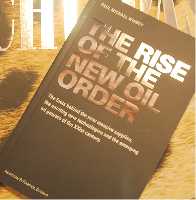
PRESS RELEASE: Cluster Munition Coalition – 12 months of suffering from cluster bombs in Lebanon, but momentum grows for international ban
London, 14 August 2007: Thousands of civilians remain at risk from Israeli cluster munitions used one year ago, but in the space of a year civil society and states have made major progress towards a new international treaty banning the weapons.
On August 14, 2006, the day of the ceasefire, cluster munitions killed or injured 13 civilians returning to their homes. A year later, the Landmine Resources Center has recorded 219 civilian casualties from cluster munitions and the contamination in southern Lebanon is still severe and dangerous.
The UN estimates that Israel used 4 million submunitions, the majority in the last 72 hours before the ceasefire. Of the 219 civilians killed or injured by unexploded submunitions in Lebanon since August 14 2006 about 35% have been children. In the same period an additional 32 people have been killed or injured during clearance work. Clearance operations involve over 1,300 personnel and have cleared more than 125,000 submunitions. 37km2 of land is contaminated, hampering agriculture, the basis of southern Lebanon’s economy. A year after the conflict ended, Israel still has not released strike data that the UN requested to help clearance. Cluster Munition Coalition member Habbouba Aoun of the Landmines Resource Center in Beirut has worked since the ceasefire to support survivors and prevent casualties from cluster munitions by educating the local population.
“It is already one year since the war. I have been in the field since July 2006. I saw bodies, blood everywhere, women crying, children dying, villages completely damaged, and misery and disasters everywhere. All of us who have been helping others are traumatized by the feeling that we still have to live the war after the cease fire because of the cluster bomb problem. We are all suffering from this problem. We are all calling people of the world to put an end to the misery caused by cluster bombs,” Aoun said from Beirut.
75 states are now participating in the Oslo Process, launched in February 2007 when 46 governments supported a declaration to establish an international treaty by 2008 to ‘prohibit cluster munitions that cause unacceptable harm to civilians’. Belgium, Norway, Austria, Hungary and the Netherlands have renounced or suspended use of the weapon. The next major international conference will take place in Vienna, 5-7 December.
“The past year of suffering in Lebanon shows once more why cluster bombs must never be used. As we move closer than ever to an international treaty banning this weapon we call on all responsible states to join this effort,” said Thomas Nash, Coordinator of the Cluster Munition Coalition.
Affected communities in southern Lebanon also hold out hope for the new treaty and what it will mean for them.
“I survived a cluster bomb explosion in September 2006. For a while I wished I didn’t survive. Now, one year after the war, I say I am so lucky I am still alive. Despite the destruction caused by the war, we were able to rebuild the bridges and start reconstruction. But who is rebuilding the lives of those people who lost limbs or got injured by a cluster bomb? What counts is that we witnessed the war and we are still alive to tell the world that a ban of cluster bombs is needed. Look at us, you would know why,” said Mohamed Kassen Abbedd from Snayeh.
Notes to editors:
Cluster munitions are large weapons that contain dozens and often hundreds of smaller submunitions. They are dropped from the air or fired from the ground. They endanger civilians during strikes because of their broad area effect. They also cause civilian casualties and interfere with livelihoods after a conflict because many of their submunitions do not explode on impact as designed.
The CMC is an international network of over 200 civil society organisations in 50 countries working on an international campaign to achieve a treaty by 2008 to ban cluster munitions and ensure care, rehabilitation and inclusion for survivors and affected communities. More information at: http://www.stopclusterbombs.org.
75 countries stockpile and 34 have produced cluster munitions. They have been used by 14 countries in at least 29 countries and territories.
Interviews in London: Thomas Nash, CMC Coordinator Mobile: +44 (0) 7711 926 730 – English, French, Spanish
Interviews in Beirut: Habbouba Aoun, Landmines Resource Center Lebanon Mobile: +961 365 8573 – English, French, Arabic





